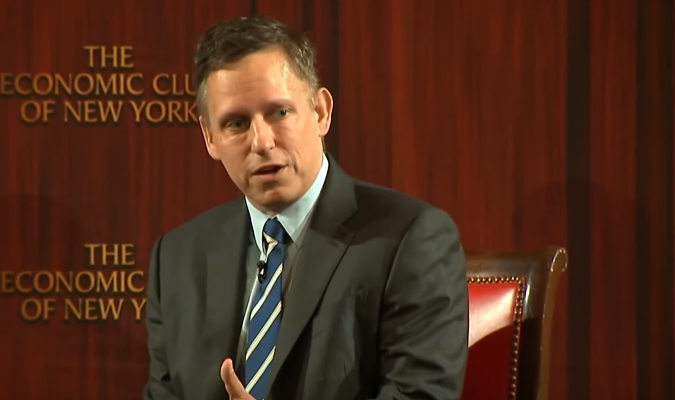Peter Thiel: “There are a lot of very granular questions that we need to be asking [about global trade and specifically US-China trade.”
Granularity is a measure of the degree of specificity at issue. As Henry points out, this is a metaphor.
How big a grain size do you want? You can speak of fine-grained, medium-grained, or coarse-grained analyses or details. Fine-grained means that many minor details are accounted for; coarse-grained means it’s a Big Picture, with lots of generalizations and few details.
Being specific is not always so important as having just the right granularity.
Answer by John Lawler
A source: Stack
Good YouTube Channels
Interesting for Thinking
Nexus Institute
Jerusalem Center
Rubin Report
Municipal Art Society of NY
The Monthly
Heritage Foundation
Economist
Aspen
The AI Channel
Stories
STIP Idealab
Space is Kind of Cool
Society of Geeks
Quinnipiac U
PBS Infinite
ORF India
Mises
Milken
Isaac Arthur
Harvard Law
Gresham College
Gad Saad
Council on Foreign Relations
Bill Kristol
Colttaine
Changling9au
CIGI
CSIS
CLG
Black Pigeon
JCCSF
Amicus Humani
American Voice for Freedom
American Enterprise Institute
AFP Online
1791L
Pop Blogs
Modern Rogue
Science Channel
Scam School
RC Anime
NYPD Exposed
News B Funny
Japan Society NYC
Japanology
News Videos
Fifth Estate
Daily Signal
Canadian Press
Russia Insider TV
KCET
INRUSSIA
Fact Point Video
Euractiv
DW English
Channel 4 News
C-SPAN
AP
AFP News
Things
Stealthb2777
Sony
Motor Trend
Military Archive
Knobs
IJ Net Video
Harold’s Planet
Fusion (Food)
Film Courage
Exploring Alternatives
EFF
Daily Aviation
Carykh (AI)
Boston Dynamics
Brandon Rohrer (AI)
Bea PI
Armed Forces Update
AIIR Source
For Music Channels, click here.
How Higher Costs Help the Biggest Companies - Peter G. Klein
Does any business like higher costs? Does any company like increased regulations, whether good or bad, which make it more difficult to operate? Does any company want a government that does this type of thing, and will support such a government?
Yes, in a competitive market, those types of difficulties benefit the biggest companies, who have the resources to do these things easily, and which will make business relatively harder for their smaller business competitors who might even go out of business. It’s in their interest to support governments who promise and execute these types of governmental actions, making it costlier to do business.
Economist Peter G. Klein, speaking at a recent Mises podium, gave some examples of this:
“Walmart can easily afford to design the parking lot in a certain way to make sure there are no steps as you enter the store. It’s easy for Walmart to do, and of course Walmart Corporation has hundreds, maybe thousands, of attorneys and compliance officers and all sorts of folks who specialize in understanding the regulations and making sure the firm is in compliance. Mom and Pop stores don’t have that. They can’t afford to build a ramp instead of stairs. They can’t afford to re-pave their parking lot. They don’t have a lawyer on retainer who can help them decipher the latest requirement of the Americans with Disabilities Act.
“So large companies often lobby for more regulation, for stricter government requirements on disclosure and so forth, because they know they can afford it and their smaller, newer rivals cannot afford it.”
 " >
" >


